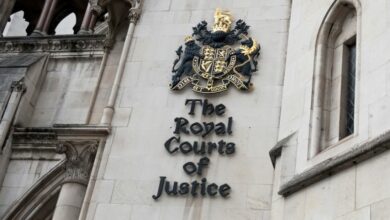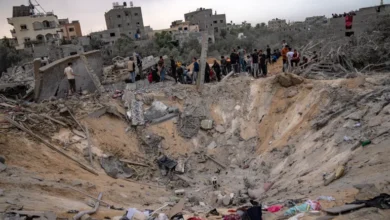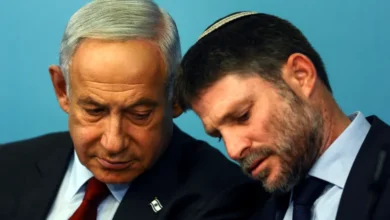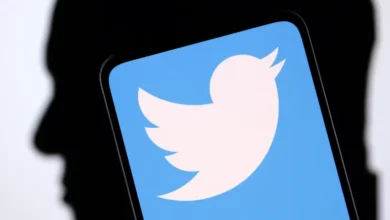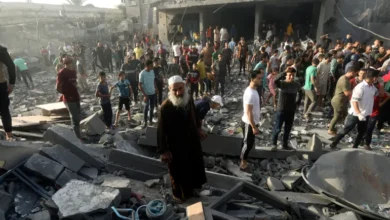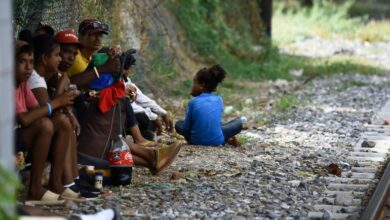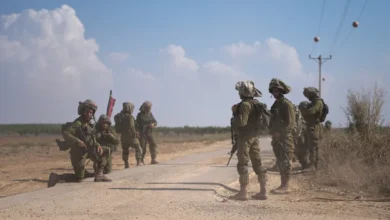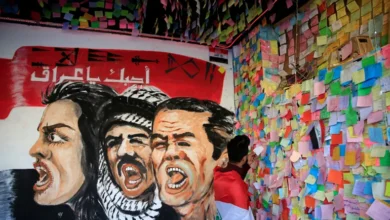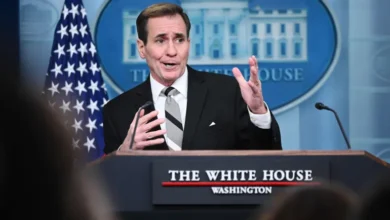Putin is starting 2024 from a position of strength
Leonid Ragozin
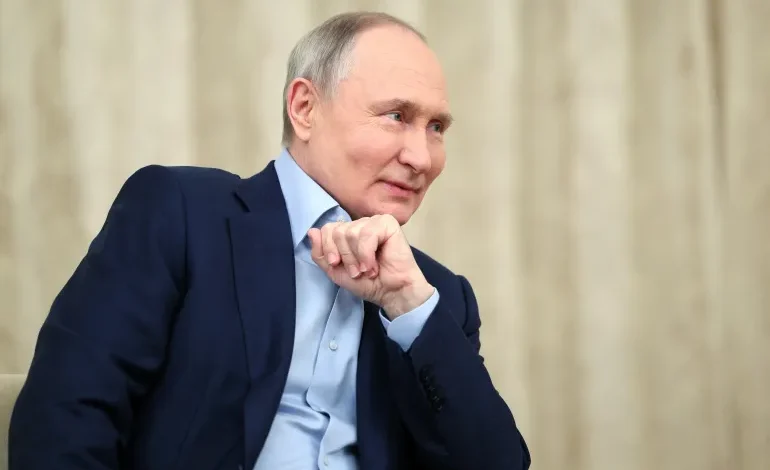
Leonid Ragozin
Russian President Vladimir Putin entered 2024 with the confidence of a man who is sensing that he might be gaining the upper hand in a wrestling match against a far superior rival.
Just a few weeks earlier, he had announced his intention to run for re-election during a ceremony awarding medals to Russian veterans of the war in Ukraine. The conflict has featured prominently in his election campaign, reflecting his apparent belief that its outcome will be in his favour.
The far superior rival Putin is confronting, of course, is not Ukraine. From the Kremlin’s perspective, Russia is engaged in an epic battle against the entire Western military machine, to which Ukraine has recklessly offered itself as a battlefield and a source of gun fodder.
This narrative is what the Russian leadership genuinely believes in and what it is successfully peddling to the Russian public. Conveniently, it also serves as an excuse for Russia’s own military setbacks during 2022 – the failure to crush Ukrainian resistance expediently as well as the subsequent loss of occupied territory later that year.
In 2023, Russia did not make any spectacular gains on the battlefield, but neither did it lose ground. The highly anticipated Ukrainian counteroffensive failed miserably to achieve any major and strategic progress – to the Kremlin’s delight.
The collapse of the Russian economy that many had hoped would precipitate the demise of Putin’s regime also did not materialise. The economy is, in fact, in overdrive due to the unprecedented military spending, with the national gross domestic product (GDP) growing faster than the world’s average, wages rising at a record rate and the percentage of people living in poverty falling back to levels not seen since the collapse of the USSR. This overdrive may backfire, but not too soon and likely not catastrophically.
The political regime is also more stable than it has ever been. The war allowed Putin to cleanse the political field of any type of opposition. The armed rebellion staged by the Wagner Group generated a lot of excitement in hawkish circles in the West, but it turned out to be an entirely inconsequential event, as this author warned soon after it happened.
That the war has not weakened Putin and is unlikely to do so if it continues appears to be an idea Western political elites find difficult to digest. Western war cheerleaders continue to push for a military solution and stir fears of an expansion of the conflict.
Last month, Belgian army chief Michel Hofman said Russia would likely target Moldova and the Baltic states. Echoing him, former US ambassador to the United Nations and current presidential candidate, Nikki Haley, suggested in a January 5 tweet that Russia also intends to attack Poland, which has one of the largest armies in NATO.
But a series of revelations by one Ukrainian negotiator and a number of foreign officials about the peace talks, which were held in Istanbul in March 2022, exposed some uncomfortable truths: namely, that Russia’s real appetite at the beginning of the war was far more modest and largely confined to keeping Ukraine out of NATO.
The Kremlin’s initial plan of full-out invasion appears to have been a scaled-up version of its war on Georgia in 2008 – a punitive and terrorising act designed to “Finlandise” rather than fully subjugate Ukraine.
“Finlandisation” refers to the idea that Ukraine could build its relations with Russia following Finland’s template during the Cold War. This would entail military non-alignment but also near-full political independence from Russia and a de facto political alliance with the West. The term became a dirty word in the Western “securitocratic” circles that were nudging Ukraine towards making no compromises with Russia.
As it stands now, this war is likely to end with a very similar kind of arrangement, with Ukraine paying a steep price: losing more of its territory, enduring the consequences of destroyed infrastructure and large swaths of land covered with mines and cluster bombs, and suffering immense human losses which the Ukrainian government prefers not to disclose.
There are many unanswered questions that will be the subject of controversy for decades to come. Was the war avoidable? What pushed Putin to order a full-out invasion after a year of brinkmanship? Who encouraged Ukrainian President Volodymyr Zelenskyy to stand firm rather than succumb to Russian pressure?
Was Ukraine’s very existence really at stake, as Ukrainian war cheerleaders claim? Or did it pay this enormous price for an illusory NATO membership prospect as well as the right to pursue questionable nation-building goals, such as squeezing the Russian language out of public space and knocking down monuments of Russian poets and communist heroes?
Spin doctors will certainly try to frame any future peace arrangement as Ukraine’s victory by claiming it would have fared much worse had it failed to put up a fight.
As we near the end of the second year since the full-scale invasion, both the United States and the European Union are struggling to secure funding for Ukraine’s war effort due to internal opposition.
Over the New Year, Russia launched massive missile and drone attacks, trying to exhaust the Ukrainian air defence and hoping that in the absence of funding, it would eventually run out of expensive missiles for anti-aircraft systems. If it succeeds, it will proceed to methodically destroy Ukrainian military infrastructure by bomber planes, precipitating Ukraine’s military collapse faster than many would have imagined.
These days, Ukraine looks like it has been thrown under the proverbial bus more than ever since the start of the full-out invasion. And so does the Russian pro-Western opposition as well as much of what the West achieved by bringing the Cold War to a peaceful end whereby its totalitarian rival, the USSR, disbanded itself of its own volition.
The West and Russia are in many ways back to square one, with a new version of the Cold War likely setting in after the hot phase of the war in Ukraine ends. This will be tragic for the people of Ukraine, Russia and the whole of Europe. But not for the military-industrial complexes and “securitocratic” elites on both sides of the newly-formed geopolitical rift, and not least for their most notorious embodiment – Vladimir Putin.

